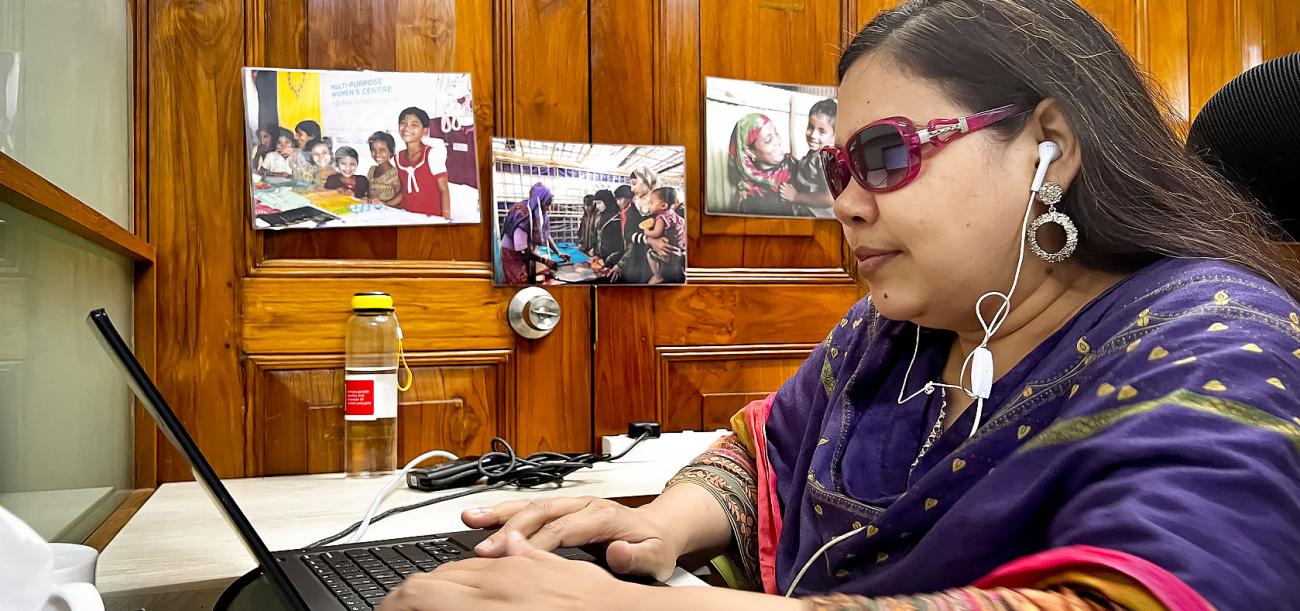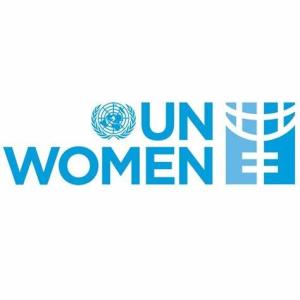Nazma Ara Begum Poppy is a UN Volunteer working as a National Project Support Officer at the UN Women Bangladesh office. She is supporting a United Nations joint initiative to accelerate the implementation of the Convention on the Rights of Person with Disabilities and disability-inclusive Sustainable Development Goals. The initiative is funded by the United Nations Partnership on the Rights of Persons with Disabilities Multi-Partner Trust Fund. Read her story of overcoming her challenges, in her own words.
I did not grow up with my parents in Chittagong. I stayed in a hostel. We were allowed to come home during vacations only. For me, the options were either education or living with my parents. I thank my parents for choosing the former. However, opportunities for education were limited for people like me, especially as a visually impaired girl in Bangladesh.
It is crucial to include persons with disabilities as part of the team, in every organization. They should be able to fully participate in all activities like everyone else.
Negative attitudes, inaccessible systems, and infrastructure that overlook the concerns of people with disabilities, especially women, pose significant challenges.
Teaching and working as a telephone operator were the only options available to us. But I wanted to make a difference. I wanted to work in the development sector so that others in my community could have more choices than the limited ones available to them.
After completing my education, I faced difficulty renting a flat. Landlords were unwilling to rent to a visually impaired woman. I remember crying as I did not want to go back to Chittagong. I would not be able to pursue a career if I went back. I had to stay in Dhaka. Eventually, I found a sublet near my workplace, sharing it with a few female colleagues.
For me, barriers are so many. I cannot walk to work or use public transportation. So the commute is expensive for me. I always have to live close to where I work.
It is crucial to include persons with disabilities as part of the team, in every organization. They should be able to fully participate in all activities like everyone else. Reasonable accommodations must be made available to ensure they do not face any barriers in the workplace. The organization's policies, strategies and implementation need to reflect this commitment. Inclusion goes beyond paperwork; it must be visible and tangible.
After completing my master's degree in sociology from Dhaka University, I joined the National Forum of Organizations Working with the Disabled and then worked for Handicap International-Humanity and Inclusion. When the opportunity came to join UN Women, I seized it, as it aligned with the work I had dedicated to in my previous role.
UN Women provided reasonable accommodations, like JAWS software [software for visually impaired individuals] on my laptop. I have a supportive manager and work in an inclusive environment. It's a mutual learning experience where I learn from my colleagues every day, and they, in turn, learn how to collaborate effectively with a person with a disability.








